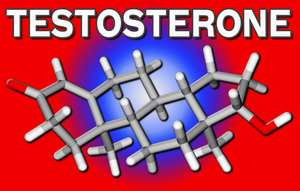Introduction
Nutropin, a brand name for recombinant human growth hormone (rhGH), is widely used in the United States for various medical conditions, including growth hormone deficiency in children and adults. Recent studies have begun to explore its effects on insulin sensitivity and overall metabolic health, particularly in American males. This article delves into the relationship between Nutropin and insulin sensitivity, providing insights into its potential benefits and considerations for metabolic health.
Understanding Insulin Sensitivity
Insulin sensitivity refers to how effectively the body's cells respond to insulin, a hormone crucial for regulating blood glucose levels. High insulin sensitivity allows cells to use blood glucose more effectively, reducing the risk of metabolic disorders such as type 2 diabetes. Conversely, low insulin sensitivity, or insulin resistance, can lead to elevated blood sugar levels and increased risk of metabolic diseases.
Nutropin's Mechanism of Action
Nutropin works by mimicking the action of natural growth hormone in the body. It binds to growth hormone receptors, stimulating the production of insulin-like growth factor-1 (IGF-1), which plays a significant role in growth and metabolism. While primarily used to treat growth-related issues, Nutropin's influence on insulin sensitivity has garnered attention due to its potential metabolic implications.
Research on Nutropin and Insulin Sensitivity
Several studies have investigated the effects of Nutropin on insulin sensitivity. A notable study published in the *Journal of Clinical Endocrinology & Metabolism* found that Nutropin administration in growth hormone-deficient adults led to improved insulin sensitivity. The researchers observed a significant decrease in fasting insulin levels and an improvement in glucose disposal rates, suggesting a positive impact on metabolic health.
However, the effects of Nutropin on insulin sensitivity can vary depending on factors such as dosage, duration of treatment, and the individual's baseline metabolic status. For instance, a study in *Diabetes Care* reported that high doses of Nutropin in non-growth hormone-deficient individuals could lead to insulin resistance. This underscores the importance of personalized treatment plans and close monitoring when using Nutropin.
Implications for American Males
American males, particularly those with a higher risk of metabolic disorders due to lifestyle factors such as sedentary behavior and poor diet, may benefit from understanding Nutropin's potential effects on insulin sensitivity. While Nutropin is not typically prescribed for metabolic health alone, its use in individuals with growth hormone deficiency could have secondary benefits on insulin sensitivity.
It is crucial for American males considering Nutropin therapy to discuss their metabolic health with their healthcare providers. Regular monitoring of blood glucose levels and insulin sensitivity can help tailor the treatment to maximize benefits while minimizing potential risks.
Considerations and Future Directions
The relationship between Nutropin and insulin sensitivity is complex and requires further research to fully understand its implications. Future studies should focus on long-term effects, optimal dosing strategies, and the impact of Nutropin on different populations, including those with pre-existing metabolic conditions.
Moreover, lifestyle interventions such as diet and exercise should be considered alongside Nutropin therapy to enhance insulin sensitivity and overall metabolic health. American males can benefit from a holistic approach that combines medical treatment with lifestyle modifications to achieve optimal health outcomes.
Conclusion
Nutropin's influence on insulin sensitivity presents a promising area of research with potential benefits for metabolic health, particularly in American males. While Nutropin can improve insulin sensitivity in certain contexts, its effects are dose-dependent and require careful monitoring. As research continues to evolve, a personalized and comprehensive approach to treatment will be essential in maximizing the benefits of Nutropin while safeguarding metabolic health.
Contact Us Today For A Free Consultation

- Unveiling the Role of Nutropin in Managing Noonan Syndrome: A Targeted Approach to Genetic Disorders [Last Updated On: February 24th, 2025] [Originally Added On: February 24th, 2025]
- Nutropin's Role in Managing Growth Hormone Deficiency in American Male Adolescents [Last Updated On: March 10th, 2025] [Originally Added On: March 10th, 2025]
- Unlocking the Potential: Nutropin's Role in Enhancing Growth for Small for Gestational Age Infants [Last Updated On: March 13th, 2025] [Originally Added On: March 13th, 2025]
- Unveiling the Potential of Nutropin in Managing Growth Challenges in Prader-Willi Syndrome [Last Updated On: March 15th, 2025] [Originally Added On: March 15th, 2025]
- Exploring Nutropin's Impact on Blood Sugar Levels: Strategies for Managing Diabetes Risk in American Males [Last Updated On: March 16th, 2025] [Originally Added On: March 16th, 2025]
- Exploring Nutropin's Role in Thyroid Health Management for American Males [Last Updated On: March 16th, 2025] [Originally Added On: March 16th, 2025]
- Nutropin and Vitamin Synergy: A Comprehensive Approach to Male Nutritional Health [Last Updated On: March 16th, 2025] [Originally Added On: March 16th, 2025]
- Nutropin's Impact on Adrenal Health in American Males: Monitoring and Management [Last Updated On: March 16th, 2025] [Originally Added On: March 16th, 2025]
- Unveiling the Impact of Nutropin on Skin Health: Enhancing Collagen and Elasticity in American Males [Last Updated On: March 16th, 2025] [Originally Added On: March 16th, 2025]
- Nutropin's Cardiovascular Risks and Benefits in American Males: A Detailed Analysis [Last Updated On: March 19th, 2025] [Originally Added On: March 19th, 2025]
- Nutropin Enhances Immune Function in American Males: Benefits and Considerations [Last Updated On: March 19th, 2025] [Originally Added On: March 19th, 2025]
- Nutropin: Reversing Growth Hormone Decline in Aging American Males [Last Updated On: March 19th, 2025] [Originally Added On: March 19th, 2025]
- Nutropin in Athletics: Myths, Facts, and Risks for American Males [Last Updated On: March 20th, 2025] [Originally Added On: March 20th, 2025]
- Nutropin's Psychological Impact on American Males: Benefits, Risks, and Support Needs [Last Updated On: March 20th, 2025] [Originally Added On: March 20th, 2025]
- Nutropin's Impact on American Males: Beyond Growth to Psychological and Social Well-being [Last Updated On: March 20th, 2025] [Originally Added On: March 20th, 2025]
- Nutropin's Role in Enhancing Cognitive Function in American Males: A Comprehensive Review [Last Updated On: March 20th, 2025] [Originally Added On: March 20th, 2025]
- Nutropin Enhances Sleep, Recovery, and Metabolic Health in American Males [Last Updated On: March 21st, 2025] [Originally Added On: March 21st, 2025]
- Nutropin's Role in Muscle Development: Benefits, Risks, and Integration into Fitness [Last Updated On: March 21st, 2025] [Originally Added On: March 21st, 2025]
- Nutropin's Impact on Lung Development in American Males: Research and Implications [Last Updated On: March 22nd, 2025] [Originally Added On: March 22nd, 2025]
- Nutropin and Cancer Risk in American Males: Current Evidence and Clinical Implications [Last Updated On: March 22nd, 2025] [Originally Added On: March 22nd, 2025]
- Nutropin: Enhancing Growth and Joint Health in American Males [Last Updated On: March 22nd, 2025] [Originally Added On: March 22nd, 2025]
- Nutropin's Impact on Eye Health in American Males: Benefits and Risks [Last Updated On: March 22nd, 2025] [Originally Added On: March 22nd, 2025]
- Nutropin's Impact on Blood Sugar: Diabetes Management Strategies for American Males [Last Updated On: March 22nd, 2025] [Originally Added On: March 22nd, 2025]
- Nutropin's Impact on Gastrointestinal Health in American Males: Benefits and Management [Last Updated On: March 23rd, 2025] [Originally Added On: March 23rd, 2025]
- Nutropin's Impact on Collagen and Skin Elasticity in American Males [Last Updated On: March 23rd, 2025] [Originally Added On: March 23rd, 2025]
- Nutropin's Potential in Enhancing Hair Growth for American Males: A Scientific Review [Last Updated On: March 23rd, 2025] [Originally Added On: March 23rd, 2025]
- Nutropin's Impact on Liver Function in American Males: Risks and Management [Last Updated On: March 23rd, 2025] [Originally Added On: March 23rd, 2025]
- Nutropin's Impact on Adrenal Health in American Males: Risks and Management [Last Updated On: March 23rd, 2025] [Originally Added On: March 23rd, 2025]
- Nutropin's Impact on Allergic Reactions in American Males: A Comprehensive Analysis [Last Updated On: March 23rd, 2025] [Originally Added On: March 23rd, 2025]
- Nutropin Therapy in Males: Growth Benefits and Dental Health Management [Last Updated On: March 23rd, 2025] [Originally Added On: March 23rd, 2025]
- Nutropin: A Novel Approach to Managing Inflammation in American Males [Last Updated On: March 23rd, 2025] [Originally Added On: March 23rd, 2025]
- Nutropin's Potential in Managing Anemia: Mechanisms, Evidence, and Considerations for American Males [Last Updated On: March 24th, 2025] [Originally Added On: March 24th, 2025]
- Nutropin Therapy: Benefits, Risks, and Impact on Auditory Health in American Males [Last Updated On: March 24th, 2025] [Originally Added On: March 24th, 2025]
- Nutropin Therapy in American Males: Enhancing Efficacy Through Optimal Hydration [Last Updated On: March 24th, 2025] [Originally Added On: March 24th, 2025]
- Nutropin's Impact on Male Fertility: Benefits, Risks, and Future Research [Last Updated On: March 25th, 2025] [Originally Added On: March 25th, 2025]
- Nutropin Therapy: Pre-Surgical Planning to Post-Op Care for American Males [Last Updated On: March 25th, 2025] [Originally Added On: March 25th, 2025]
- Nutropin's Potential in Treating Autoimmune Disorders in American Males: Emerging Evidence [Last Updated On: March 25th, 2025] [Originally Added On: March 25th, 2025]
- Nutropin's Impact on Insulin Production in American Males: A Comprehensive Analysis [Last Updated On: March 25th, 2025] [Originally Added On: March 25th, 2025]
- Nutropin's Effect on Vaccine Response in American Males: A Comprehensive Analysis [Last Updated On: March 25th, 2025] [Originally Added On: March 25th, 2025]
- Nutropin Therapy and Thyroid Health: Monitoring and Management for American Males [Last Updated On: March 25th, 2025] [Originally Added On: March 25th, 2025]
- Nutropin's Impact on Cholesterol Levels in American Males: A Lipid Profile Analysis [Last Updated On: March 25th, 2025] [Originally Added On: March 25th, 2025]
- Nutropin Therapy Enhances Fitness: Tailored Exercise and Nutrition for American Males [Last Updated On: March 25th, 2025] [Originally Added On: March 25th, 2025]
- Nutropin Therapy: Monitoring and Managing Cardiovascular Health in American Males [Last Updated On: March 26th, 2025] [Originally Added On: March 26th, 2025]
- Nutropin and Physical Therapy: Enhancing Rehabilitation for American Males [Last Updated On: March 26th, 2025] [Originally Added On: March 26th, 2025]
- Nutropin Therapy: Managing Infection Risks in American Males [Last Updated On: March 26th, 2025] [Originally Added On: March 26th, 2025]
- Nutropin Risks for American Males: Understanding Blood Clotting and Precautions [Last Updated On: March 26th, 2025] [Originally Added On: March 26th, 2025]
- Nutropin Therapy: Kidney Function Monitoring and Risks for American Males [Last Updated On: March 26th, 2025] [Originally Added On: March 26th, 2025]
- Nutropin and Speech Therapy: Enhancing Language Development in American Males [Last Updated On: March 27th, 2025] [Originally Added On: March 27th, 2025]
- Nutropin: Enhancing Growth and Health in American Males with GHD [Last Updated On: March 27th, 2025] [Originally Added On: March 27th, 2025]
- Nutropin's Impact on Heart Rate in American Males: Cardiovascular Insights [Last Updated On: March 27th, 2025] [Originally Added On: March 27th, 2025]
- Nutropin's Impact on Growth and Education for American Male Students with GHD [Last Updated On: March 27th, 2025] [Originally Added On: March 27th, 2025]
- Nutropin: Enhancing Growth and Weight Management in American Males [Last Updated On: March 28th, 2025] [Originally Added On: March 28th, 2025]
- Nutropin and Occupational Therapy: Enhancing Life for American Males with Growth Deficiency [Last Updated On: March 28th, 2025] [Originally Added On: March 28th, 2025]
- Nutropin: Enhancing Immune Function in American Males [Last Updated On: March 28th, 2025] [Originally Added On: March 28th, 2025]
- Nutropin's Role in Enhancing Social Connections Among American Males [Last Updated On: March 28th, 2025] [Originally Added On: March 28th, 2025]
- Nutropin and Nutrition: Optimizing Growth in American Males [Last Updated On: March 29th, 2025] [Originally Added On: March 29th, 2025]
- Nutropin and Behavioral Therapy: Enhancing Emotional Health in American Males [Last Updated On: March 29th, 2025] [Originally Added On: March 29th, 2025]
- Nutropin in American Males: Physical Growth and Psychological Impacts [Last Updated On: March 30th, 2025] [Originally Added On: March 30th, 2025]
- Nutropin Therapy: Enhancing Growth and Family Unity in American Males [Last Updated On: March 30th, 2025] [Originally Added On: March 30th, 2025]
- Nutropin's Impact on Cognitive Function and Academic Success in American Males [Last Updated On: March 30th, 2025] [Originally Added On: March 30th, 2025]
- Nutropin and Community Support: Enhancing Growth Hormone Deficiency Care for American Males [Last Updated On: March 31st, 2025] [Originally Added On: March 31st, 2025]
- Nutropin Therapy: Managing Costs and Insurance for American Males' Growth Disorders [Last Updated On: April 4th, 2025] [Originally Added On: April 4th, 2025]
- Nutropin: Vital for American Males with GHD Amid Access Challenges and Advocacy Needs [Last Updated On: April 4th, 2025] [Originally Added On: April 4th, 2025]
- Personalized Nutropin Therapy: Optimizing Growth Hormone Treatment for American Males [Last Updated On: April 6th, 2025] [Originally Added On: April 6th, 2025]
- Nutropin Therapy Monitoring in American Males: Role of Diagnostic Imaging [Last Updated On: April 7th, 2025] [Originally Added On: April 7th, 2025]
- Nutropin's Role in Advancing Growth Hormone Therapy for American Males [Last Updated On: April 7th, 2025] [Originally Added On: April 7th, 2025]
- Nutropin Therapy in American Males: Biomarkers' Role in Personalized Treatment Optimization [Last Updated On: April 7th, 2025] [Originally Added On: April 7th, 2025]
- Nutropin Benefits for American Males Enhanced by Genetic Testing in Personalized Medicine [Last Updated On: April 7th, 2025] [Originally Added On: April 7th, 2025]
- Nutropin and Herbal Supplements: Safety and Efficacy for American Males [Last Updated On: April 10th, 2025] [Originally Added On: April 10th, 2025]
- Nutropin Therapy Enhanced by Pharmacogenomics for American Men's Personalized Treatment [Last Updated On: April 12th, 2025] [Originally Added On: April 12th, 2025]
- Nutropin Therapy in American Males: Monitoring Electrolytes for Optimal Health [Last Updated On: April 12th, 2025] [Originally Added On: April 12th, 2025]
- Nutropin's Impact on Acid-Base Balance and Metabolism in American Males [Last Updated On: April 12th, 2025] [Originally Added On: April 12th, 2025]
- Nutropin's Impact on Mineral Balance and Bone Health in American Males [Last Updated On: April 12th, 2025] [Originally Added On: April 12th, 2025]
- Nutropin and Vitamins: Enhancing Nutritional Support for American Males' Health and Performance [Last Updated On: April 12th, 2025] [Originally Added On: April 12th, 2025]
- Nutropin Therapy in American Males: Managing Drug Interactions for Optimal Growth [Last Updated On: April 13th, 2025] [Originally Added On: April 13th, 2025]
Word Count: 574



















